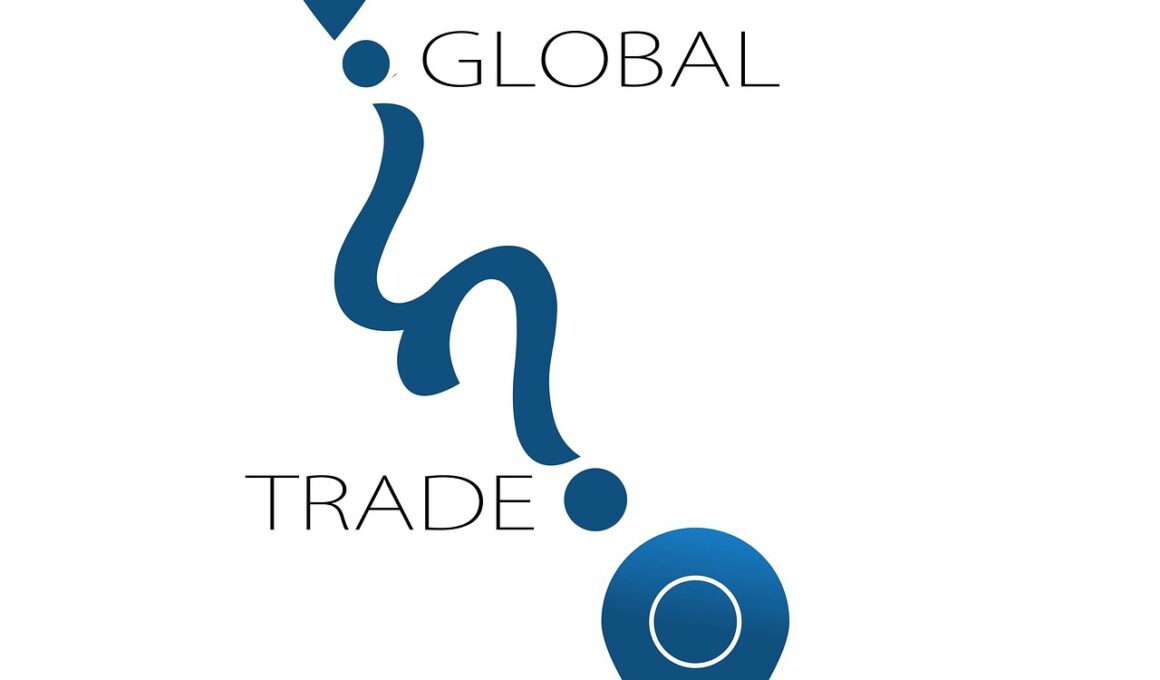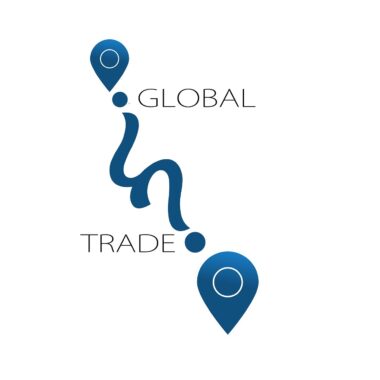Advancing Ethical Standards Through Trade Agreements
International trade plays a significant role in shaping economic interactions between nations. It is essential that the governance of these trade agreements now factors in ethical considerations. Trade agreements traditionally focused on reducing barriers and enhancing economic cooperation; however, with emerging global challenges, the ethical dimensions must be addressed. Incorporating trade ethics includes considerations for fair labor practices, environmental stewardship, and respect for human rights. When nations enter into trade agreements, they have the opportunity to set standards that are not only economically beneficial but also morally sound. Negotiating ethical standards can lead to enhanced corporate responsibility amongst businesses operating within these frameworks. Companies that adhere to these ethical guidelines can help produce a more sustainable global economy. Ethical trade practices also bolster trust among trading partners, fostering long-term relationships. Furthermore, stakeholders from various sectors, including governments, NGOs, and businesses, must work together to identify and integrate these ethical standards into trade agreements. Building upon these foundations will serve to advance responsible international trade, ultimately contributing to a more equitable world.
Ethical considerations in trade agreements offer a comprehensive framework that guides corporate conduct. Countries can establish standards through trade agreements that address various dimensions of corporate responsibility. By setting clear guidelines on labor laws, environmental impacts, and consumer rights, nations can protect vulnerable populations. Businesses, in return, benefit from compliant operational practices that enhance their reputation and competitiveness. Ethical trading helps in reducing exploitation while promoting fair competition among companies. When trade agreements include specific regulations about ethics, it creates a level playing field. Corporations must adapt their practices to align with these agreements to avoid penalties or barriers to trade. Moreover, companies can leverage these ethical attributes as part of their brand identity, gaining support from conscientious consumers. The rise of ethical consumerism means that customers are increasingly choosing to purchase from businesses that align with their values. In this context, trade agreements become a critical vehicle for pushing ethical practices in international trade. Through transparency and accountability, ethical standards can transform how companies operate globally, equipping them to navigate the complexities of modern commerce.
Corporate Social Responsibility (CSR) and Trade
Corporate Social Responsibility (CSR) has gained enormous traction in recent years, as businesses navigate the expectations of consumers and regulatory bodies. Companies are increasingly recognizing the importance of incorporating CSR into their business models, particularly within the context of international trade. By committing to CSR principles, organizations demonstrate their dedication to ethical conduct, encompassing social and environmental responsibilities. Trade agreements can guide companies in establishing CSR initiatives that go beyond mere compliance, pushing the envelope for progressive practices. Integration of CSR into trade can create a ripple effect, enhancing the productivity and morale of the workforce. CSR-driven practices can influence everything from product sourcing to supply chain management, making them pivotal in shaping corporate ethics. Strategic partnerships built upon these principles may help firms innovate sustainable solutions in their operations. Moreover, collaborative actions among businesses facilitating ethical standards can drive demand for responsible products. Ultimately, adopting robust CSR measures not only fulfills ethical obligations but can also lead to competitive advantages in international markets.
As we delve into the nuances of trade and corporate responsibility, the role of international organizations becomes critical. Organizations such as the World Trade Organization (WTO) and United Nations (UN) influence the direction of ethical standards in global trade. Through various initiatives, these organizations advocate for incorporating labor, environmental, and antitrust regulations in trade agreements. Their efforts are aimed at creating a framework of accountability, thereby empowering countries to champion ethical practices. The collaboration among governments, civil society, and businesses fosters a culture where ethical considerations inform decision-making processes within trade policies. This collective approach enables nations to establish robust ethical guidelines that reflect the aspirations of their citizens. Furthermore, global initiatives help maintain pressure on businesses to improve their practices consistently. Through advocacy, education, and policy reform, international organizations play a pivotal role in promoting ethical standards that steer corporations towards sustainable operations. As stakeholders unite in this quest for ethical trade, opportunities emerge that yield mutual benefits while simultaneously raising the global standards of conduct across diverse markets.
Transparency and Accountability in Trade
Transparency and accountability are fundamental especially when discussing ethical trade practices within agreements. In the contemporary business landscape, stakeholders demand insight into the operations and practices of corporations. Trade agreements can embed mechanisms requiring companies to disclose information about their supply chains, labor practices, and environmental impacts. A higher degree of openness can significantly diminish instances of unethical practices such as human trafficking, exploitation, and corruption. Moreover, implementing a robust system of accountability ensures that organizations remain true to their commitments outlined within these agreements. This can be achieved through third-party audits, public reporting, and stakeholder engagement. By insisting on these accountability measures, nations can compel corporations to act in good faith while also safeguarding their reputation. Additionally, transparency lays the foundation for consumer trust, leading to increased market loyalty. In a world where information is readily available, consumers possess the power to choose ethically responsible brands. Thus, trade agreements emphasizing transparency align with the changing consumer expectations while driving implementation of fair corporate practices across global markets.
The future of ethical standards in international trade hinges on the collaborative efforts between governments and civil societies. Advocating for the inclusion of ethical guidelines within trade agreements enables stakeholders to work hand-in-hand towards common goals. Regional and bilateral trade agreements present an invaluable opportunity for nations to collaboratively establish ethical standards. By sharing best practices and experiences, countries can innovate mechanisms aimed at ensuring compliance. Moreover, civil society organizations can play a data-driven role by monitoring compliance with ethical standards, providing valuable insights to policymakers. This participative approach creates an avenue for the public to engage in international trade discourse, enhancing civic responsibility. As public awareness of sustainability increases, the role of civil society in shaping future policies will only grow stronger, helping to hold corporations accountable. Collective action, from both consumers and civil society, can pressure governments to institutionalize higher ethical standards. Moreover, cooperation among different stakeholders can foster innovative solutions to overcome challenges faced in implementing ethical practices, strengthening the legitimacy of trade agreements at both local and international levels.
Conclusion: The Path Forward for Ethical Trade
Advancing ethical standards through trade agreements represents a critical step toward enhancing global collaboration and responsibility. By incorporating robust ethical considerations, nations can foster a trading environment that not only benefits economies but respects social and environmental dimensions. Trade ethics pave the way for companies to navigate complex global markets with accountability, providing greater transparency to stakeholders. As more businesses adopt ethical frameworks, informed consumers will further pressure others to do the same, creating a self-sustaining cycle of responsible practices. This evolution requires concerted efforts from governments, multilateral organizations, and civil society to continuously innovate and adapt ethical standards that reflect the ongoing challenges faced globally. Strengthening partnerships across borders will be essential in creating a sustainable future, where ethical standards are not merely aspirational but embedded within the very fabric of international trade. The collective engagement of various stakeholders in this mission can lead to a more equitable global landscape. In conclusion, while challenges remain, the trajectory toward ethical trade represents a profound opportunity to reshape the way nations and companies will operate in the 21st century.
Through the lens of ethics and corporate responsibility, the evolution of trade agreements promotes not only economic stability but also cultivates a conscious global citizenry. In recognizing the significance of ethical considerations, these agreements offer a tangible pathway for sustainable development and respect for human rights. By working collectively toward shared goals and establishing high standards, the future of international trade can be one marked by inclusivity and respect.





